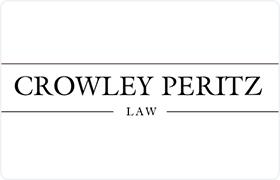Arlington County, VA Criminal Lawyers
Sponsored Law Firm
-
 x
x

Click For More Info:
-
Crowley Peritz Law
10560 Main Street Suite 501 Fairfax, VA 22030» view mapCriminal Defense Law Over 20 Years Of Combined Experience
Our lawyers are experts in a variety of misdemeanor and felony crimes. We understand that choosing the best criminal lawyer for your case is not a simple task.
800-916-2741
Karin Riley Porter
✓ VERIFIEDCriminal, DUI-DWI, Felony, Misdemeanor, Federal
Karin Porter is a practicing lawyer in Virginia who focuses on criminal cases. Ms. Porter has previously served as an Assistant Commonwealth's Attorne... (more)
FREE CONSULTATION
CONTACTElizabeth P. Martin
Employee Rights, Criminal, Administrative Law, Legal Malpractice
Status: In Good Standing Licensed: 39 Years
Elizabeth Lauwaert Tuomey
Traffic, Divorce & Family Law, Criminal, Accident & Injury
Status: In Good Standing
Leonard P. Buscemi
Traffic, Criminal, Business, Personal Injury
Status: In Good Standing Licensed: 43 Years
Vikrant Padala Reddy
Juvenile Law, State Appellate Practice, Criminal, Administrative Law
Status: In Good Standing Licensed: 16 Years
Manuel Rivera
Immigration, Workers' Compensation, Family Law, Criminal
Status: In Good Standing Licensed: 38 Years
Bradley Flynn Hayes
Intellectual Property, White Collar Crime, Constitutional Law, Car Accident
Status: In Good Standing Licensed: 19 Years
Michael Ephraim
Juvenile Law, Traffic, Family Law, Criminal
Status: In Good Standing Licensed: 32 Years
Raymond V. Smietanka
Dispute Resolution, Lawsuit & Dispute, Criminal, Administrative Law
Status: In Good Standing Licensed: 50 Years
 Matthew Crowley Fairfax, VA
Matthew Crowley Fairfax, VA Practice AreasExpertise
Practice AreasExpertise

